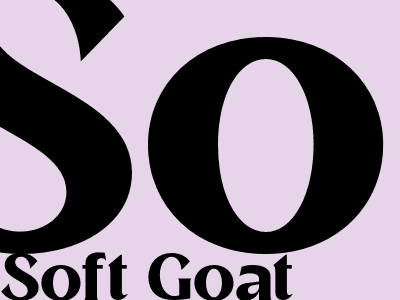Soft Goat: A Comprehensive Guide to a Unique and Enchanting Breed
Introduction
Soft Goat is not your average goat breed. This docile and small-statured breed hails from the Antipodes, and over generations have adapted to the unique climatic conditions of New Zealand. Soft Goats are renowned for their fine, silky fleece, making them a popular choice for fiber enthusiasts. Their gentle nature and adaptability also make them a suitable breed for small-scale farmers and hobbyists. This article delves into the origins, characteristics, care, and unique qualities of Soft Goats, providing a comprehensive guide for those interested in this charming breed.
Origins and History
Soft Goats have humble beginnings, originating from a cross between Angora and Cashmere goats in the early 20th century. New Zealand farmers recognized the potential of this unique breed and continued to develop the Soft Goat breed. Today, Soft Goats are primarily found in New Zealand, with smaller populations in other parts of the world, prized for their exceptional fleece and lovable personalities.
Physical Characteristics
Soft Goats are known for their distinctive appearance. Their defining feature is their fine, silky fleece that covers their entire body. This fleece comes in a wide range of colors, from white to gray to black, and provides excellent insulation. Soft Goats are relatively small in size, with does weighing around 60-80 pounds and bucks weighing around 100-120 pounds. They have a compact build with short legs, a straight back, and a distinctive Roman nose.
Fleece and Fiber
The fleece of Soft Goats is highly sought after for its unique qualities. The fibers are incredibly soft and fine, with a diameter of around 15-20 microns. This fineness makes it comparable to cashmere, producing a luxurious and warm fabric. Soft Goat fleece is also very strong and durable, making it ideal for a wide range of textile applications, including yarn, scarves, and shawls.
Care and Management
Soft Goats are relatively low-maintenance animals, making them suitable for a variety of farming operations. They can adapt to a wide range of climates and are comfortable in both hot and cold conditions. However, they require access to shelter during extreme weather conditions for protection. Soft Goats require regular shearing, usually twice a year, to maintain the quality of their fleece. They also need regular hoof trimming and deworming to ensure their health and well-being.
Temperament and Personality
Soft Goats are known for their gentle and docile nature, making them a delight to interact with. They are curious and playful animals that enjoy human companionship. Their calm demeanor makes them suitable for families with children and for those looking for a pet goat. Soft Goats are also intelligent and trainable, making them easy to manage. They form strong bonds with their owners and are often described as affectionate and loyal companions.
Unique Qualities
Beyond their soft fleece and endearing personalities, Soft Goats possess several unique qualities that set them apart from other goat breeds. They have a high feed conversion rate, meaning they can efficiently convert feed into meat or fiber. Soft Goats are also known for their longevity, with some individuals living for up to 15 years. Additionally, they are relatively resistant to parasites and diseases, requiring less veterinary care.
Conclusion
Soft Goats are an exceptional breed with a unique combination of desirable traits. Their fine, luxurious fleece, gentle nature, and adaptability make them a valuable asset for farmers and fiber enthusiasts alike. Whether you're a seasoned goat breeder or simply seeking a charming and affectionate companion, Soft Goats offer a rewarding experience. By understanding their origins, characteristics, care, and unique qualities, you can provide an optimal environment for these remarkable animals to thrive and bring joy to your life.

Soft Goat
Comments